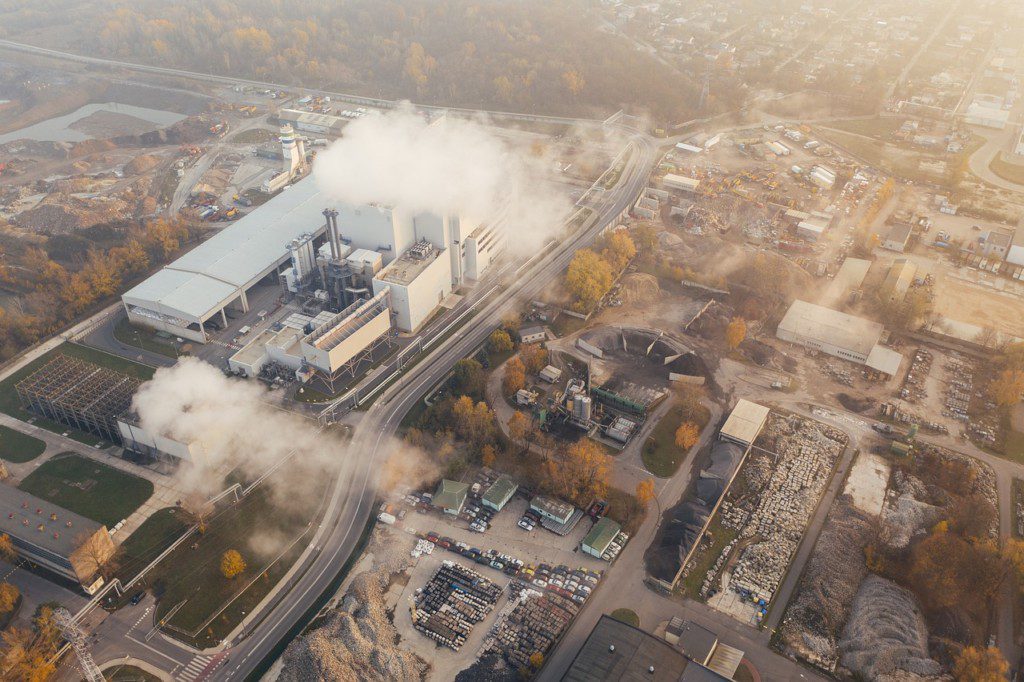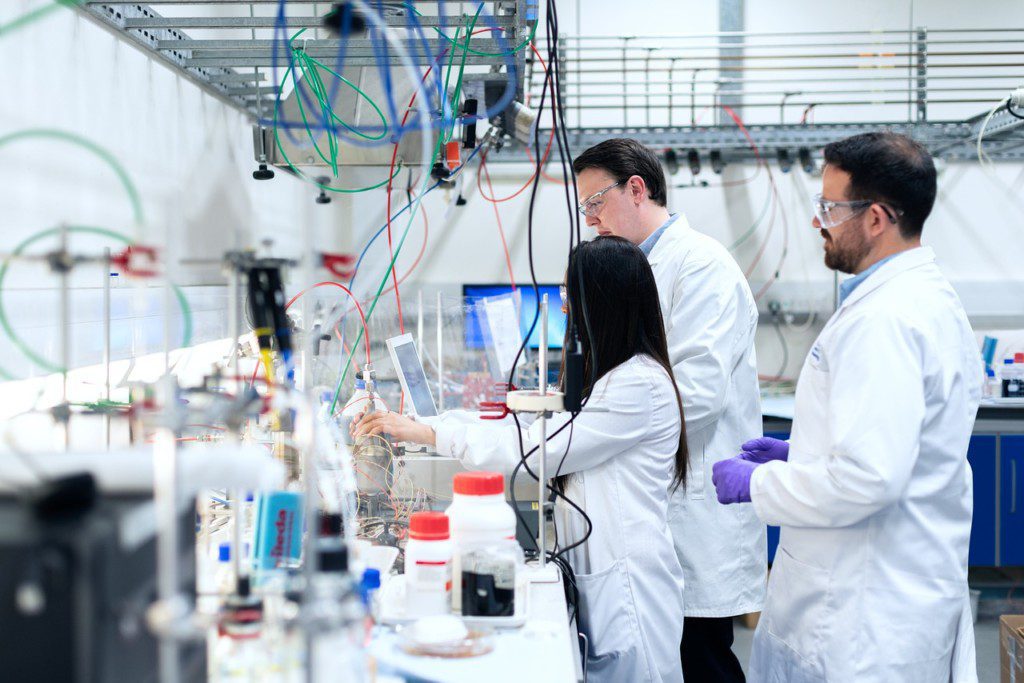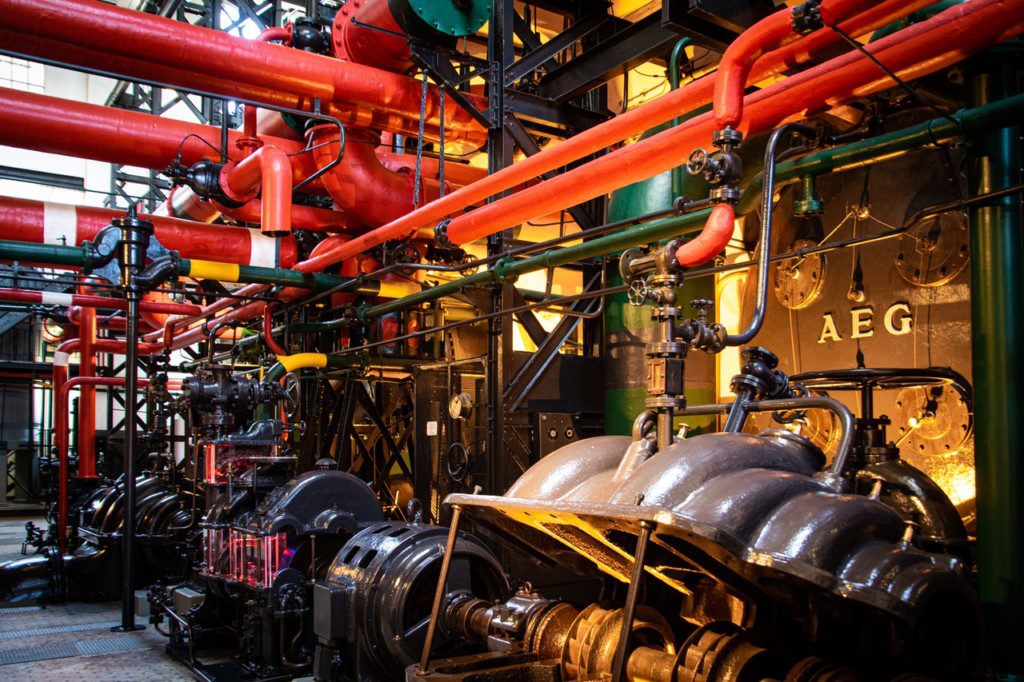10/25/2021 | Industrial Wastewater | 8 MINUTE READ
The Chemical Processing Industry Explained
When your facility wants to create polymers, petrochemicals, or fragrances, these chemical compounds are produced from chemical processing. During chemical processing, raw materials are chemically converted into finished products. There are several ways that chemical processing can occur. For instance, it’s possible for chemical reactions to be produced from inorganic or organic materials.
Separation of a natural product can also take place with or without the assistance of chemical reactions. The third option for chemical processing involves preparing a formulated mixture of different substances, which can be either synthetic or natural. The purpose of this process is to make sure that other industries obtain products that are useful or valuable to their operations. Many products created with chemical processing are also used in a person’s everyday life.
Along with the products mentioned previously, other items like rubber, ceramics, explosives, and flavors can also be made with chemical processing. Keep in mind that the chemical processing industry can be a demanding one for workers and equipment alike. Most chemical processing facilities use specialized equipment while the manufacturing process is ongoing. This equipment is able to withstand intense operating conditions.
However, the very nature of chemical processing creates extreme conditions in the facility. Because of these conditions, any equipment in the facility must be able to stand up to high amounts of stress, corrosion, heat, and pressure. Workers must also deal with these conditions, which means that they will need to be outfitted with the right clothing and must have the training and expertise necessary to perform chemical processing tasks without issue. This article goes into detail about the chemical processing industry and the impact it has.
Safety of Chemical Processing
Despite the necessity of chemical processing, this industry has some safety issues that everyone at the facility must be able to properly handle. For one, the use of heavy machinery means that workers must account for a range of different mechanical hazards, all of which could lead to serious injury. There are also numerous chemical hazards that workers must contend with, which extend to:
– Fire hazards
– Explosion hazards
– Toxic hazards
– Reactivity hazards
The safety procedures that are needed for a chemical processing facility depend on the complexity of the chemical processes that are ongoing. More complex processes will invariably require more stringent safety procedures. Any chemical process engineers who work at the facility must have complete understanding of how to perform various processes safely.
Chemical process safety has become highly important in any industrial facility that relies on chemical processes. The exact safety procedures that are used by each facility depend on which chemicals or materials are being handled by the workers. For instance, it’s possible that workers will be tasked with handling powders and various bulk solids. In this situation, every equipment operator must be properly trained. It’s also important that anyone who comes into contact with the powder handling equipment has received some training.
It’s important to understand that the processing and handling of dusts and dry materials represent distinct toxicity, fire, and explosion hazards. Even if materials are inert when they are in a consolidated form, they could become very hazardous once converted to granules or powders. Any powder handling equipment that’s used in a chemical processing facility must be able to remove the 13 possible ignition sources that exist with dry substances.
What Does the Chemical Process Operator Do?
Chemical process operators are tasked with managing the chemical mixing, packaging, and processing operations throughout the chemical processing facility. These individuals must monitor panel lights, recording instruments, and flow meters. While monitoring these instruments, the chemical process operator will need to listen for any warning signals that indicate a potential hazard or issue.
During the course of a typical workday, the chemical process operator will adjust different control settings that affect yields, quality, or the speed of chemical reactions. They are directly responsible for transferring chemicals through the storage and process areas, which is done with tanks and conveyors. All operators are required to adhere to safety procedures, environmental policies, and organizational rules. If any problems occur while a product is being transferred, the operator will be tasked with researching and troubleshooting the problems so that they can be properly resolved.
Even though chemical process operators have some similarities to chemical process engineers, there are also some key differences that you might want to be aware of. For instance, chemical process engineers are mainly responsible for designing chemical process equipment and plants as well as creating new industrial processes. While chemical process engineers are tasked with implementing the technology they develop in a chemical processing facility, many of their job duties occur in a laboratory setting. While the names are similar, chemical process engineers are considerably different than chemical process operators.
Industries of Chemical Processing
Chemical processing industries are able to produce a wide range of products by combining two or more chemicals together to create a reaction. The finished products can be found in practically every market and industry, which include cars, airplanes, clothes, healthcare, computers, foods, and medicine. Even though chemical processing facilities are the primary ones that form chemical compounds that can be used in various products, all industries benefit from the work that’s completed in a processing facility. There are four different categories of process chemicals that you should be aware of, which include basic chemicals, specialty chemicals, consumer chemicals, and bio-based chemicals.
Basic chemicals can include petrochemicals, polymers, and basic organics. Petrochemicals are derived from oil and can include ethylene and methanol. Some polymers include polyamide, polyethylene, and polycarbonate. The basic organics that are commonly used in various industries include chlorine, sulfuric acid, and hydrochloric acid. Some examples of specialty chemicals include adhesives, construction chemicals, agrochemicals, and flame-retardants.
There are a large number of consumer chemicals that people tend to use around their homes and in their yards. These chemicals mainly extend to alcohol, paints, cosmetics, herbicides, pesticides, foods, cleaners, and glues. Bio-based chemicals are relatively new and primarily include ethanol polysaccharides, furan dicarboxylic acid, polylactic acid, and bio aromatics.
Economic Impact of the Chemical Processing Industry
The chemical processing industry can have a substantial impact on the economy. Chemical processing and production are continuing to expand. However, these expansions have a somewhat uneven geographic distribution. Even though highly developed countries were once the focal point of the chemical processing industry, this industry is experiencing a larger expansion in developing countries. In these countries, chemical processing is necessary because of the ever-growing need for additional domestic production. The growth of chemical processing also depends on the proximity that a country has to raw materials and final markets.
The global chemical processing industry is vast and was able to grow to more than $6 trillion in value by 2020. By 2050, the industry is expected to grow an additional 3%. As mentioned previously, however, this growth differs depending on the location. The growth rate in Africa, South America, and Asia is expected to be around 4-8% annually. On the other hand, the growth rate in North America, Japan, and Europe is only expected to be around 2-3% annually. As of 2020, developing countries are home to more than 30% of global chemical production and global chemical consumption.
Health Impact of the Chemical Processing Industry
The chemical processing industry has also had a substantial health impact that you should understand. For instance, chemical processing requires raw materials in order to create different products. Raw materials are limited in availability, which means that consumption of these materials by the chemical processing industry increases their overall scarcity.
The manufacturing and transportation of chemicals are known to adversely affect the public’s health as well as the local environment if the right precautions aren’t put into place. Environmental emissions alone can create problems with the health of local wildlife as well. Even though the products that are being manufactured by chemical processing facilities are essential to a person’s everyday life, the inherent nature of the chemical processing industry means that public health could be put at risk.
It’s believed that the only way for countries to properly address the concerns that occur with the chemical processing industry is to incorporate the means of properly managing chemicals into their social and economic development priorities. It’s important to understand that toxic chemical releases can be very damaging to the local environment and could create issues with public health for many miles away from the main location where the release took place.
An increasing number of environmental laws and regulations have been put in place over the past two decades to make sure that the industry operates cleaner facilities and takes time to implement policies that would reduce chemical emissions. The public has also become more demanding in recent years when it comes to being protected from the dangers of chemicals. It’s likely that these demands will eventually cause the EPA and other regulatory agencies to create even stricter guidelines that the chemical processing industry must abide by.
The chemical processing industry is highly important to other industries as well as a person’s everyday life. There are an array of useful products that can be created through the chemical processing industry. Each facility that operates in this industry must take measures to ensure proper worker safety and the correct handling of equipment. Without these procedures and precautions in place, hazardous situations would likely increase.
Posted by Dominic O'Donnell on October 25, 2021
Sensorex is a global leader in the design and manufacture of quality sensors for water quality and process applications. The company offers more than 2000 sensor packages for pH, ORP, conductivity, dissolved oxygen, free chlorine, chlorine dioxide, UV transmittance and other specialty measurements, as well as a full line of sensor accessories and transmitters. Its expert technical support engineers solve analytical sensor challenges with custom designs and off the shelf products.







